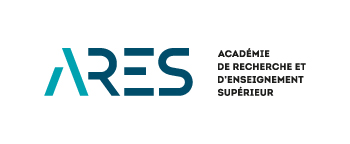01/ Goals
The Specialized Master in Public Health Methodology aims at developing and reinforcing methodological skills of public health actors, with a focus on, but not limited to, issues of middle- and low-income countries. Graduates will be able to develop, lead, implement and evaluate public health programmes and projects, be it in international organisations, government institutions, health care providers or in research institutes.
The programme is intended for health professionals at different levels of the health system: medical doctors; nurses and other paramedical professionals with complementary training in research; social sciences professionals involved in public health; biostatisticians and public health researchers; decision makers and executives... The goal is to acquire high-quality scientific skills needed for the development of analytical and specialized public health research. The targeted skills aim to support the overall objective of ensuring state of the art methodological approaches and public health decision-making, consistent with the needs of populations, communities and individuals.
This Specialized Master thus addresses analytical methods to investigate major health issues from a global health perspective. It intends to give to the learners a strong foundation for a systemic understanding of health issues as well as its contextual and environmental determinants.
This training offers a specialization in quantitative methods (epidemiology and biostatistics), through applied learning using the adequate software tools and applications, culminating in an end of year work (thesis). However, since quantitative methods cannot be used in isolation from a public health perspective, other methods are thoroughly addressed in complement: analysis of contextual factors; analysis of health systems; epidemiology in conflict and emergency situations; research in NGOs; health economics; qualitative research; international rights and institutions… Learners will develop transversal skills such as research methodology, scientific writing and capitalization of public health actions. Teaching is based on hybrid and diverse methods, including topical examples and immediate and concrete applications through in-group and personal works steadily over the academic year.
02/ Programme content
The programme includes a compulsory part (50 ECTS) and an optional part (10 ECTS must be chosen among the 15 proposed ECTS).
Compulsory part:
- Biostatistics in public health (2 parts of 5 ECTS each)
- Methods in epidemiology (3 ECTS)
- Clinical-decision making (2 ECTS)
- Contextual factors in public health (1 ECTS)
- Health system and public health research (4 ECTS)
- Health economics & risk management (5 ECTS)
- Management of health services (3 ECTS)
- Protocol development and health examination surveys (2 ECTS)
- Qualitative methods (3 ECTS)
- Research in health: dissemination & systematic reviews (2 ECTS)
- Thesis (15 ECTS)
In addition to these 50 credits, 3 optional courses, of 5 ECTS each, are offered. The student must take at least 10 ECTS in order to reach a 60 ECTS master.
Options:
- Advanced methods in biostatistics and epidemiology (5 ECTS)
- International health and rights: organizations and actors (5 ECTS)
- Infectious & environmental diseases: epidemiology & prevention (5 ECTS)
03/ Admission
The Specialized Master in Public Health Methodology is open to a wide range of practitioners (medical doctors; nurses and other paramedical professionals with complementary training in research; social sciences professionals involved in public health; biostatisticians and public health researchers; decision makers and executives...).
This course is a Specialized Master degree i.e. a master subsequent to a previous master or equivalent. Therefore the general admission requirement for the course is that the students must possess a diploma at least equivalent to a master degree (5 years of university education).
To be admitted, students must bear a 2nd cycle degree considered equivalent to 300 credits (minimum 5 years of study) by the Jury. If the degree represents only 240 credits (minimum 4 years of study), the candidate should have acquired 60 extra credits through other 2nd cycle studies or through some form of specialization, or must prove to have acquired the useful knowledge through personal or professional experience.
04/ Additional information
Number of scholarships available: 10
Length of the training: one academic year
Teaching language: English
05/ Universities
Universities:
- Université libre de Bruxelles, École de Santé Publique (ULB)
- Université catholique de Louvain, Faculté de santé Publique (UCLouvain)
- Université de Mons, Faculté Warocqué d'économie et de gestion & Faculté de médecine et pharmacie (UMONS)
Programme directors:
- Bram Vanhoutte (ULB)
- Annie Robert (UCLouvain)
- Lahcen El Hiki (UMONS)


